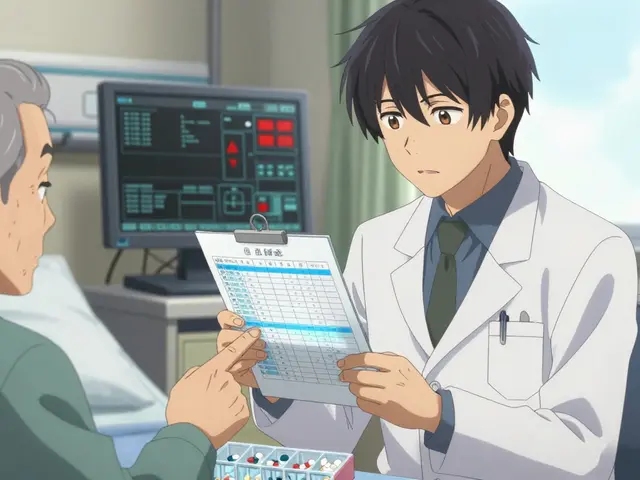Heart Failure: Simple Guide to Symptoms, Treatment & Everyday Tips
If you’ve heard the term “heart failure,” you might think it means the heart has stopped. It doesn’t – it means the heart isn’t pumping blood as well as it should. That can make you feel tired, breathless, or swollen in the legs. The good news is that early detection and the right plan can keep you feeling active.
Recognizing the Signs Early
The first clue is usually shortness of breath, especially when you climb stairs or lie flat. You might notice a persistent cough, swelling in ankles or feet, or a sudden weight gain of two or more pounds in a day. Fatigue that doesn’t improve with rest is another red flag. If any of these pop up, call your doctor – catching trouble early can prevent a hospital stay.
Doctors confirm heart failure with an echo, blood tests and sometimes a stress test. They’ll grade it from mild (Stage A) to severe (Stage D) so they can match the treatment to how much the heart is struggling.
Managing Heart Failure Day‑to‑Day
Medication is the backbone of treatment. Common pills include ACE inhibitors, beta‑blockers, and diuretics that help the body get rid of excess fluid. If you’re prescribed a drug like Hytrin (terazosin) for blood pressure, it can also ease the workload on your heart. Always follow dosing instructions and let your pharmacist know about any over‑the‑counter meds you’re taking.
Beyond pills, a heart‑friendly diet matters. Aim for low‑salt meals – think fresh veggies, lean proteins and whole grains. Too much sodium makes your body hold onto water, which can worsen swelling. A quick tip: swap salty sauces for herbs, lemon or garlic.
Staying active, even with a bit of shortness of breath, helps the heart stay strong. Start with short walks, a few minutes each day, and gradually add a bit more time. If you feel dizzy or unusually tired, pause and check in with your doctor.
Weight monitoring is a simple but powerful tool. Weigh yourself every morning after using the bathroom. A jump of a pound or two in a day can signal fluid buildup and may mean you need to adjust your diuretic dose.
Lastly, keep a list of your medications, doses and any side effects. Bring this list to every appointment – it saves time and helps your care team spot interactions early.
Living with heart failure isn’t a death sentence; it’s a call to be proactive. By spotting symptoms early, staying on track with meds, eating smart and moving a little each day, you give your heart the best chance to keep you doing the things you love.
Clear, practical guide to Capoten (captopril): what it’s for, how to take it, doses, side effects, interactions, and safety tips for 2025. Australia-focused, people-first.





